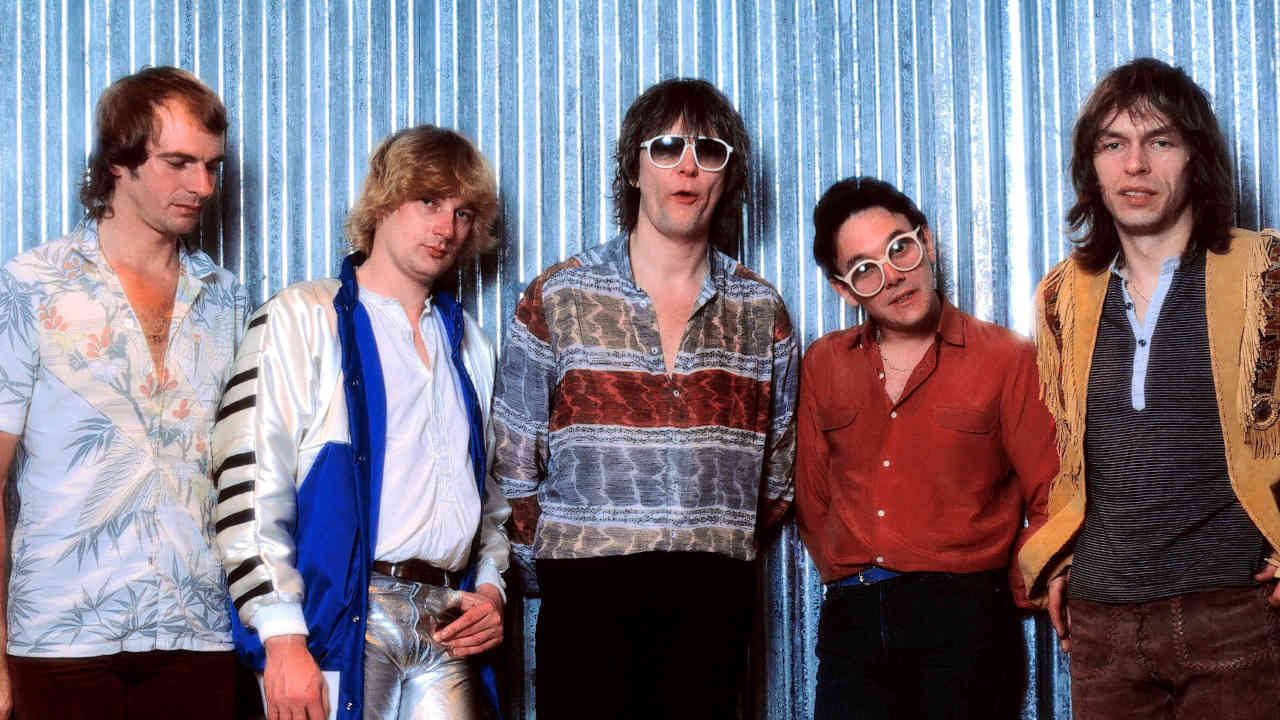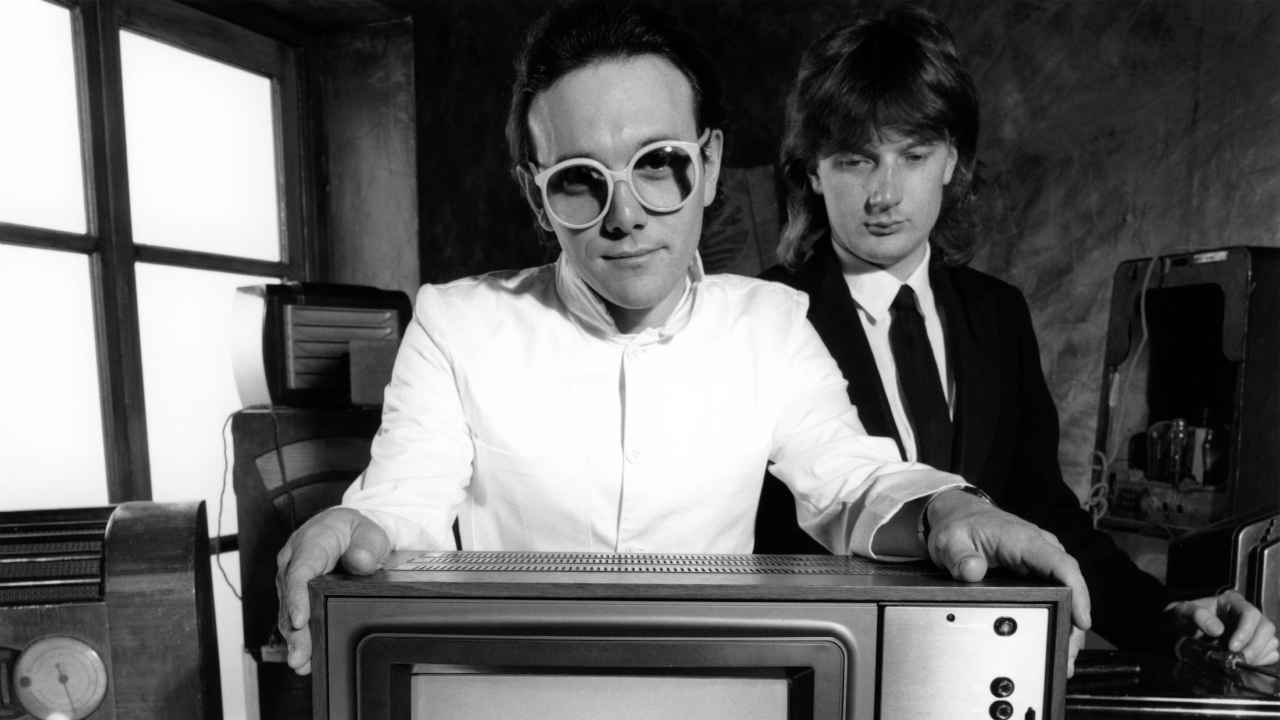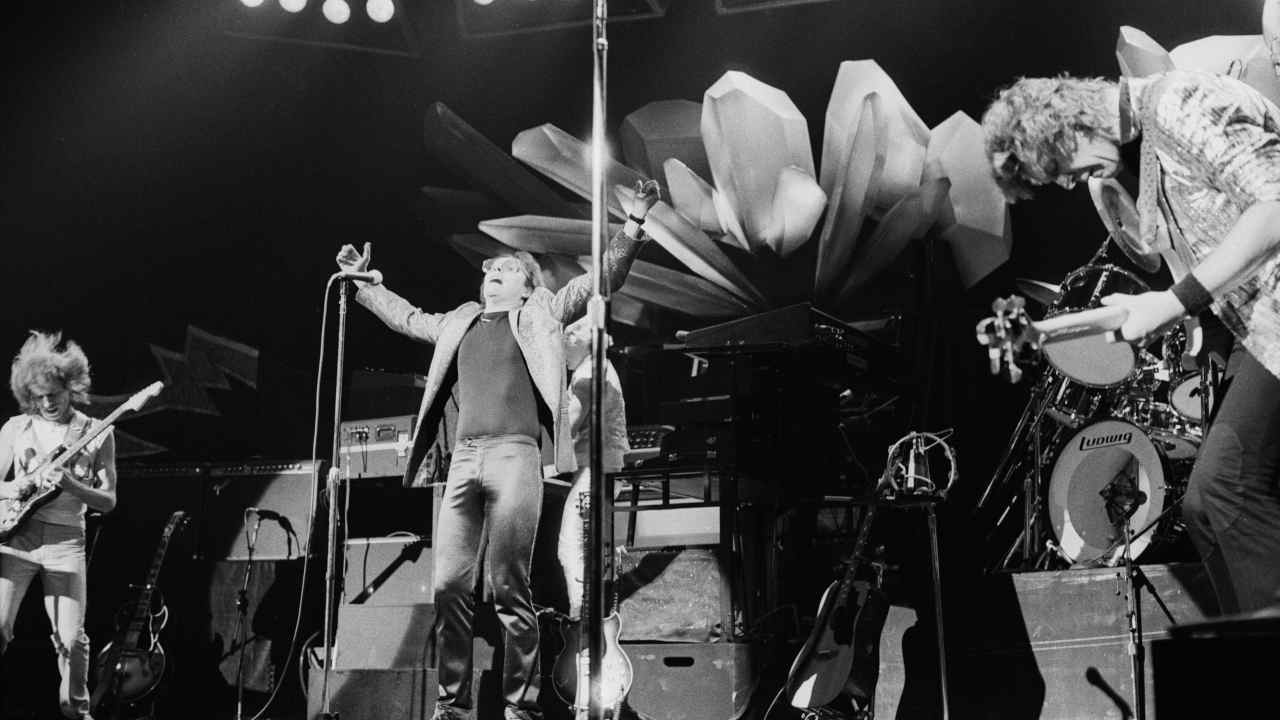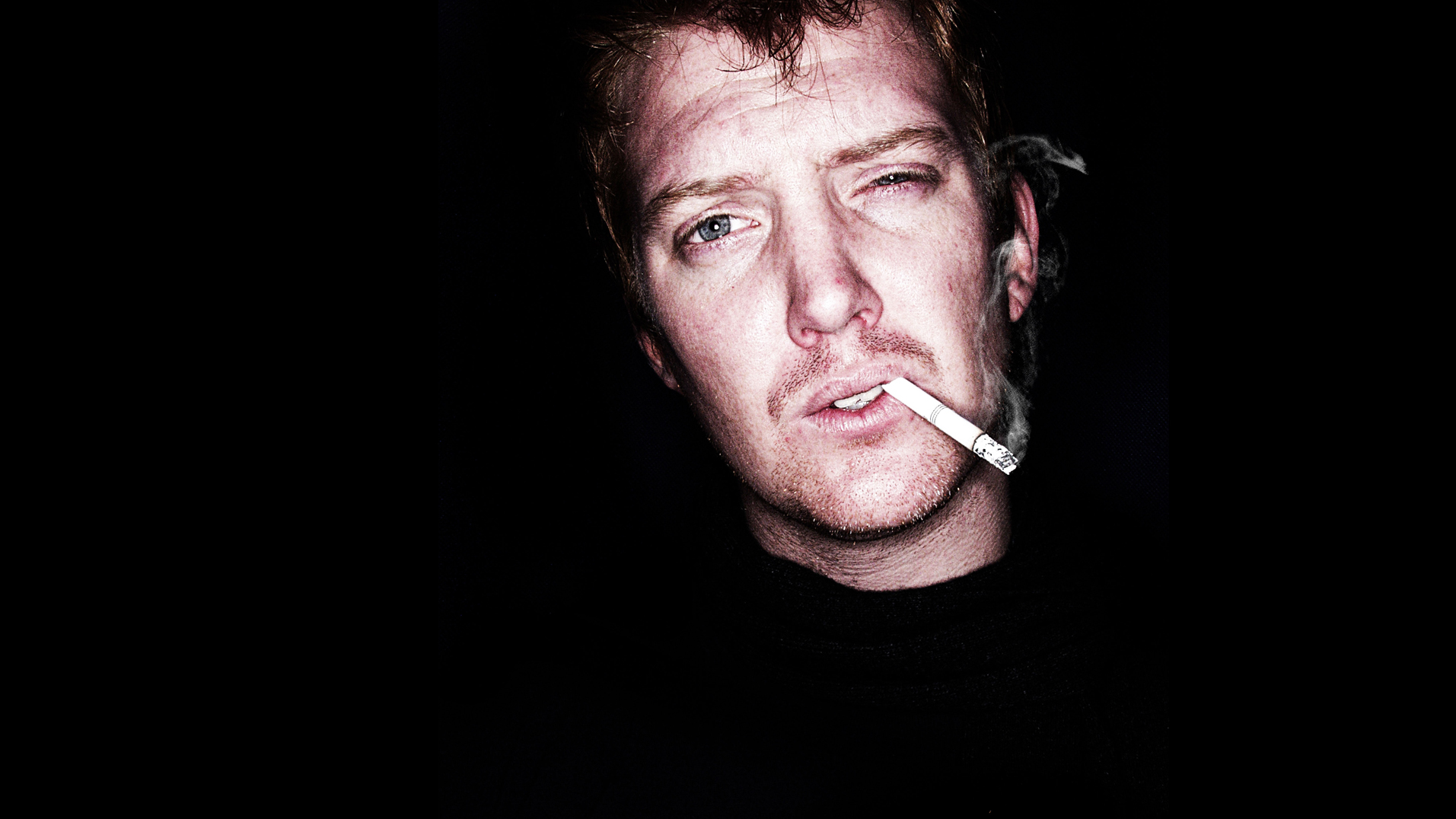“With British crowds, it was: ‘We want Jon! Get Jon back!’ People were aggressive about it”: how Yes faced down the haters and made the classic Drama album
Replacing Jon Anderson and Rick Wakemen with Buggles duo Trevor Horn and Geoff Downes was controversial – but it resulted in one of their most underrated albums, Drama

Select the newsletters you’d like to receive. Then, add your email to sign up.
You are now subscribed
Your newsletter sign-up was successful
Want to add more newsletters?

Every Friday
Louder
Louder’s weekly newsletter is jam-packed with the team’s personal highlights from the last seven days, including features, breaking news, reviews and tons of juicy exclusives from the world of alternative music.

Every Friday
Classic Rock
The Classic Rock newsletter is an essential read for the discerning rock fan. Every week we bring you the news, reviews and the very best features and interviews from our extensive archive. Written by rock fans for rock fans.

Every Friday
Metal Hammer
For the last four decades Metal Hammer has been the world’s greatest metal magazine. Created by metalheads for metalheads, ‘Hammer takes you behind the scenes, closer to the action, and nearer to the bands that you love the most.

Every Friday
Prog
The Prog newsletter brings you the very best of Prog Magazine and our website, every Friday. We'll deliver you the very latest news from the Prog universe, informative features and archive material from Prog’s impressive vault.
As the glossy, gleaming 1980s dawned, Yes, previously oft-perceived as indulgent prog dinosaurs, radically modernised. They embraced a little help from Trevor Horn and Geoff Downes (then also known as Buggles), and enjoyed a new era of success, subsequently rebooting themselves time after time with new, old and returning members. Yet not all Yes fans were enchanted.
“We started out in America, where everybody got into it straight away,” Steve Howe says of the 1980 tour by the new, Jon Anderson-less line-up. “We walked on stage and they just loved it. We did songs both old and new and nobody blinked. That was both surprising and welcome. But it disarmed us for what was to happen when we came to Britain. Which was: ‘We want Jon!’ ‘Get Jon back!’ People were quite verbal and aggressive about it. As if they hadn’t seen enough changes with Rick Wakeman coming in and out twice, and Patrick Moraz, and Bill Bruford leaving, and Tony Kaye, and Peter Banks… All through the 70s they’d put up with it. It’s fascinating that an audience can be that cruel sometimes.”
Especially when the target of their ire was only trying to keep the band alive. “My brother and I were always big Yes fans, right the way through the 70s, from The Yes Album onwards.” Trevor Horn reflects. “I even liked Tales From Topographic Oceans! We used to play it when we were building our recording studio around the time it came out. We’d be doing the building work, and that music was perfect to put on. By the end of the 70s, Going For The One was a brilliant record. But Tormato wasn’t anywhere near as good, so I slightly lost interest in them at that point – only slightly.”
Horn was not alone in wondering if Yes’s best days were behind them. As the new decade began, with new sounds and new styles, you could be forgiven for assuming that – despite stemming the tides of fashion with the sprightly Going For The One – Yes, riven by internal friction, had played their last trump card. The departing Anderson had grown frustrated at what the music industry wanted: “I didn’t care about the almighty dollar,” he says. “I just wanted to make music we could be proud of.”

Buggles were to reinvent the roundabout. “Geoff Downes and I had this huge hit with Video Killed The Radio Star – the first video ever played on MTV – and soon we had the same manager as Yes,” says Horn. “That’s really how it happened. Chris Squire liked the production on our second single, Living In The Plastic Age, and invited us to his house.
“We drove down to where he was living then, in Virginia Water. At some point during the evening I said to him: ‘I’ve got this song that might suit Yes.’ It was Fly From Here. I played it to him and he said: ‘We’ll do that if you come down to rehearsals next week.’ I said: ‘Do you want me to show the song to Jon Anderson?’ He said: ‘No, no. Jon won’t be there… for a while.’
“So we went in to rehearsals with Yes. Which was an extraordinary experience. I’d played in studios, but a band like Yes, close up – the rhythm section is like nothing else I’d ever heard in my life. And for me, to stand among them while they’re doing it… They already had loads of music worked out, like Tempus Fugit, they just needed lyrics, songs.
Sign up below to get the latest from Classic Rock, plus exclusive special offers, direct to your inbox!
“I kept saying: ‘When’s Jon Anderson coming down?’ They were still being vague about that. Then suddenly Chris said: ‘Why don’t you guys join the band? I was like: ‘Get out of it!’ Three nights at Madison Square Garden, singing Yes songs? The thought of it was terrifying. But I thought, once in a lifetime you’re going to get an opportunity like this. Are you going to say no to it? So I didn’t.”
Squire’s recollections dovetailed. “I’d met them [Downes and Horn] in our office, around the time Jon and Rick had gone off to do their solo ventures,” he told Classic Rock in 2012, three years before his death . And there was Geoff, a keyboard player, and Trevor, a singer. So I said: ‘You should think about joining Yes.’ They didn’t have too much time to think about it, and pretty much went: ‘Good idea.’
“We got stuck in and started working on new material. People thought I was mad for assuming it would work. I wasn’t sure it would. But it did. And the Drama album is one of the most respected Yes albums now.”
“It was a great area for it to go into,” Yes drummer Alan White told Classic Rock in 2012. “Steve, Chris and I were rehearsing and, just by chance, Buggles were rehearsing next door. We all started throwing around some ideas. Next thing we knew, Trevor and Geoff had moved into our room and they became part of the band. Out of that came one of my favourite albums.”
Released in August 1980, Drama reached No.2 in the UK and made the US Top 20. Even so, surely the resistance and scepticism from some fans had an unnerving effect on the band?
“Yes,” Squire conceded, “but that was totally weird. Geoff and Trevor were huge Yes fans, even though they’d just had the biggest pop single in the world, ever. And I certainly didn’t mind a bit of commerciality coming into Yes. So it worked out well. We made a great album, when we were under a lot of pressure to get it done in a short time.
“There was already a massive American tour sold out. It had been initially booked, basically, as having Jon’s and Rick’s involvement. Yet, in retrospect, when we showed up with Trevor and Geoff, people generally liked it. It wasn’t a major hiccup, somehow. We did four nights at Madison Square Garden – they gave us an award for having done 16 sold-out nights since Yes’s career began. And of course since then we’ve done a lot more. I don’t know what the record is, but we must be up there.”
However, Horn isn’t convinced that everything was quite as effortless as the bassist implied. “I tell you, it made me have a lot of respect for Jon Anderson as a singer, a respect which has grown over the years,” Horn says. “He’s a complete one-off. To have a voice like that, which is high enough and yet strong enough to cut through that rock band and yet isn’t some kind of primeval screech, it’s something really quite brilliant. People have tried to copy him but no one’s come close.”
So how close did he come?
“Well, the torch has to be kept burning; people have to keep going, they’ve got to keep making a living. Musicians want to play. And Yes wasn’t all about Jon. Yes was always five voices: four instrumental voices and one human voice. Though Chris and Steve, really, were the main guys.”
“I remember that period very fondly,” says Steve Howe. “It was almost like… the clearance of the haze. Because Tormato, and the recordings with Roy Thomas Baker [the ill-fated sessions in Paris that temporarily split the band], were a time of… dispersal. People were starting to live in different countries. Suddenly, when we got the new line-up for Drama, it was, ‘Oh, let’s just get on with this now. We know what we’re doing, we’ve got these new songs, let’s do them.’ We knuckled down. Although Trevor didn’t produce it, his role when not singing or playing was very much like that. And we had great engineers like Hugh Padgham and Gary Langan. So we were excited again. And we weren’t really conscious at the time of the heaviness of the album. It felt like a more gripping, modernised version of Yes.”
“It didn’t bother me,” Jon Anderson told Classic Rock in 2012. “I’d lost interest. Chris likes his drama. Still does. Oh gosh, I shouldn’t be saying some of these things. But hey, it’s true, y’know.”

“It was a trip,” muses Horn. “I did my best and I learned hard lessons from it. But, like I say, Jon had an exceptional voice. Anybody who tries to follow him has got a hell of a job on their hands. We had 44 shows across America, when I’d never really been a singer before. It was hard going towards the end. My voice was shot, and I wasn’t experienced enough to know when I could cancel a show and when I couldn’t, so I went ahead with all of them. And it was pretty painful.
“One of the best things was that it made me a bit fearless about anything. After you’ve been through that, nothing seems particularly frightening. There were kids coming up in America who were more interested in Buggles than in Yes. But Buggles was just a name we’d given to some songs we’d written, I was really a record producer.”
“I suppose they found it challenging because it was the first time we’d changed the vocalist,” adds Howe. “When Trevor sang the Drama stuff it was spectacular. He’d always said that he couldn’t do certain things. But we carried on doing them – not against his wishes, exactly, but he’d say something wasn’t working and then bravely go on, where others might have said: ‘Sod this, I’ll get shot.’ And while we had the belief behind us from our audience, and within ourselves, that we could do this, we did it.
“When we got that backlash, though, it got a bit cruel. One restless drunk you can override, but the cracks came when more of the audience started to rebel. There was a level of undermining. And as soon as anyone in the band is put off doing what he’s supposed to, we’re all screwed, we’re over. We’ve always been sympathetic with Trevor. He can remind us he told us some of it would be difficult, but, with a mix of perseverance and over-confidence, we’d say: ‘Oh, you’ll be all right. It’ll be fine!’ He was right. He’s very intelligent.”
Although Horn was to stop singing for Yes, he stayed on to produce their next album, the blockbusting 90125 (still the band’s biggest-selling record). Fans eventually accepted that he was doing his best for the Yes cause. Horn explains: “I don’t know… I tried. I’ve always wanted to help to keep Yes going, I suppose. I hope they don’t hate me too much. If they do, there’s not a lot I can do about it, really.”
Horn’s subsequent work in various phases with the band has done plenty. “I’ve always thought it was a great idea to do interesting, complicated music that isn’t necessarily clichéd,” he says. “But I didn’t want to go back to being the singer. If you play rock’n’roll in big stadiums for a while it does start to affect you. And I didn’t want to be affected.”
Some were, though. Despite the commercial success of Drama, Yes were soon declared to be over – officially. Management released a statement to that effect in March 1981. “Yeah,” mutters Squire. “I didn’t really understand what happened there.”
Horn pursued his soon-to-be-illustrious production career and founded ZTT Records. Howe and Downes formed Asia with bassist/vocalist John Wetton and drummer Carl Palmer. Squire and White began sessions with Jimmy Page.
“Trevor’s heart was moving into becoming a producer rather than a singer,” Squire recalls. “At the same time, Steve and Geoff, who were getting along very well, thought they’d be better off going with Asia. So that left Alan and I sitting around. Which we didn’t mind, as we’d worked so hard through the 70s – so many tours, so many albums. It was good to have a breather. Then, after John Bonham passed away, we worked with Jimmy.”
The trio called themselves XYZ (ex-Yes-and-Zeppelin). “Jimmy wanted to get back into playing,” Squire continues. “We just had to go and cheer him up, really, and get him back in the studio. He enjoyed that. There was talk of Robert Plant coming down and joining the project, but I suppose it was a little early for him to think about doing another thing after Zeppelin had come to an abrupt halt.
“After XYZ got put on the back burner, we hooked up with Trevor Rabin and decided to bring him in, Tony Kaye came back in on keyboards, and we worked on a new project from the ground up called Cinema. I got Trevor Horn to agree to produce it, Atlantic Records gave us a budget and liked what they heard, and that was all looking good… Then the European head of Atlantic said: ‘Y’know, of course, if you asked Jon to come back you could call it Yes – and we could have a much bigger album.’ And I said, ‘All right, I’ll see if he’s interested.’ Turned out that he was.”
That album was 90125, released in 1983. It didn’t just launch another iteration of Yes, it opened up an unexpected chapter of their career.
Chris Roberts has written about music, films, and art for innumerable outlets. His new book The Velvet Underground is out April 4. He has also published books on Lou Reed, Elton John, the Gothic arts, Talk Talk, Kate Moss, Scarlett Johansson, Abba, Tom Jones and others. Among his interviewees over the years have been David Bowie, Iggy Pop, Patti Smith, Debbie Harry, Bryan Ferry, Al Green, Tom Waits & Lou Reed. Born in North Wales, he lives in London.

